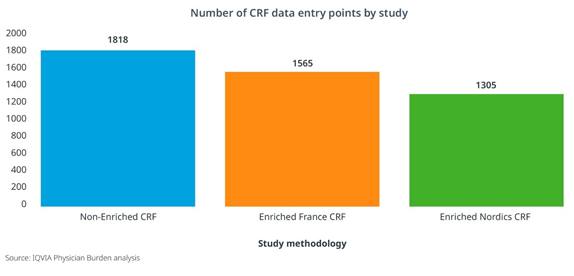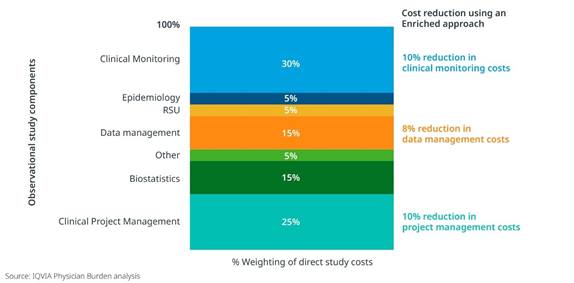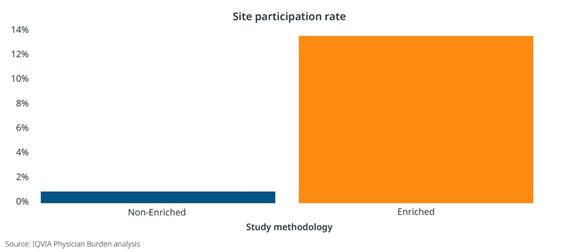-
Americas
-
Asia & Oceania
-
A-I
J-Z

EMEA Thought Leadership
Developing IQVIA’s positions on key trends in the pharma and life sciences industries, with a focus on EMEA.
Learn more -
Middle East & Africa

EMEA Thought Leadership
Developing IQVIA’s positions on key trends in the pharma and life sciences industries, with a focus on EMEA.
Learn more
Regions
-
Americas
-
Asia & Oceania
-
Europe
-
Middle East & Africa
-
Americas
-
Asia & Oceania
-
Europe
Europe
- Adriatic
- Belgium
- Bulgaria
- Czech Republic
- Deutschland
- España
- France
- Greece
- Hungary
- Ireland
- Israel
- Italia

EMEA Thought Leadership
Developing IQVIA’s positions on key trends in the pharma and life sciences industries, with a focus on EMEA.
Learn more -
Middle East & Africa

EMEA Thought Leadership
Developing IQVIA’s positions on key trends in the pharma and life sciences industries, with a focus on EMEA.
Learn more
SOLUTIONS
-
Research & Development
-
Real World Evidence
-
Commercialization
-
Safety & Regulatory Compliance
-
Technologies
LIFE SCIENCE SEGMENTS
HEALTHCARE SEGMENTS
- Information Partner Services
- Financial Institutions
- Global Public Health
- Government
- Patient Associations
- Payers
- Providers
THERAPEUTIC AREAS
- Cardiovascular
- Cell and Gene Therapy
- Central Nervous System
- GI & Hepatology
- Infectious Diseases and Vaccines
- Oncology
- Pediatrics
- Rare Diseases
- View All

Impacting People's Lives
"We strive to help improve outcomes and create a healthier, more sustainable world for people everywhere.
LEARN MORE
Harness the power to transform clinical development
Reimagine clinical development by intelligently connecting data, technology, and analytics to optimize your trials. The result? Faster decision making and reduced risk so you can deliver life-changing therapies faster.
Research & Development OverviewResearch & Development Quick Links

Real World Evidence. Real Confidence. Real Results.
Generate and disseminate evidence that answers crucial clinical, regulatory and commercial questions, enabling you to drive smarter decisions and meet your stakeholder needs with confidence.
REAL WORLD EVIDENCE OVERVIEWReal World Evidence Quick Links

See markets more clearly. Opportunities more often.
Elevate commercial models with precision and speed using AI-driven analytics and technology that illuminate hidden insights in data.
COMMERCIALIZATION OVERVIEWCommercialization Quick Links

Service driven. Tech-enabled. Integrated compliance.
Orchestrate your success across the complete compliance lifecycle with best-in-class services and solutions for safety, regulatory, quality and medical information.
COMPLIANCE OVERVIEWSafety & Regulatory Compliance Quick Links

Intelligence that transforms life sciences end-to-end.
When your destination is a healthier world, making intelligent connections between data, technology, and services is your roadmap.
TECHNOLOGIES OVERVIEWTechnology Quick Links
CLINICAL PRODUCTS
COMMERCIAL PRODUCTS
COMPLIANCE, SAFETY, REG PRODUCTS
BLOGS, WHITE PAPERS & CASE STUDIES
Explore our library of insights, thought leadership, and the latest topics & trends in healthcare.
DISCOVER INSIGHTSTHE IQVIA INSTITUTE
An in-depth exploration of the global healthcare ecosystem with timely research, insightful analysis, and scientific expertise.
SEE LATEST REPORTSFEATURED INNOVATIONS
-
IQVIA Connected Intelligence™
-
IQVIA Healthcare-grade AI™
-
Human Data Science Cloud
-
IQVIA Innovation Hub
-
Decentralized Trials
-
Patient Experience Solutions with Apple devices
WHO WE ARE
- Our Story
- Our Impact
- Commitment to Public Health
- Code of Conduct
- Environmental Social Governance
- Privacy
- Executive Team
NEWS & RESOURCES

Unlock your potential to drive healthcare forward
By making intelligent connections between your needs, our capabilities, and the healthcare ecosystem, we can help you be more agile, accelerate results, and improve patient outcomes.
LEARN MORE
IQVIA AI is Healthcare-grade AI
Building on a rich history of developing AI for healthcare, IQVIA AI connects the right data, technology, and expertise to address the unique needs of healthcare. It's what we call Healthcare-grade AI.
LEARN MORE
Your healthcare data deserves more than just a cloud.
The IQVIA Human Data Science Cloud is our unique capability designed to enable healthcare-grade analytics, tools, and data management solutions to deliver fit-for-purpose global data at scale.
LEARN MORE
Innovations make an impact when bold ideas meet powerful partnerships
The IQVIA Innovation Hub connects start-ups with the extensive IQVIA network of assets, resources, clients, and partners. Together, we can help lead the future of healthcare with the extensive IQVIA network of assets, resources, clients, and partners.
LEARN MORE
Proven, faster DCT solutions
IQVIA Decentralized Trials deliver purpose-built clinical services and technologies that engage the right patients wherever they are. Our hybrid and fully virtual solutions have been used more than any others.
LEARN MORE
IQVIA Patient Experience Solutions with Apple devices
Empowering patients to personalize their healthcare and connecting them to caregivers has the potential to change the care delivery paradigm.
LEARN MOREWORKING AT IQVIA
Our mission is to accelerate innovation for a healthier world. Together, we can solve customer challenges and improve patient lives.
LEARN MORELIFE AT IQVIA
Careers, culture and everything in between. Find out what’s going on right here, right now.
LEARN MORE
WE’RE HIRING
"Improving human health requires brave thinkers who are willing to explore new ideas and build on successes. Unleash your potential with us.
SEARCH JOBS- Blogs
- Drive Value and Reduce Study Burden with Innovative, Real World Enriched Study Methods
Real World Evidence (RWE) is steadily becoming a linchpin across the pharmaceutical product lifecycle. With new advances in data collection, quality and validity, there are even more opportunities to leverage RWE as a rich source of decision-making data that can increase value and participation while reducing the costs and burdens of observational studies. That is the foundation of an Enriched Study methodology.
Physician burden is real
There’s debate about how well non-research centric physicians are represented in studies, despite more and more research taking place outside the confines of randomized control trials. In large part, that is because of the time commitment and burden. IQVIA recently completed market research with a panel of 210 physicians across Europe and North America. The goal was to understand their willingness to participate in observational studies, and if time burden or study fees and grants mattered more to them. Our research revealed that 66% of physicians were more willing to take part in observational research if time burden was reduced, and 80% indicated that time was more of a critical determining factor than study fees and grants.
So, how can an Enriched Study approach reduce that burden? To start, Enriched Studies leverage secondary data that already exists in the healthcare ecosystem and can cut down the number of data entry points on a physician’s case report form (CRF). This secondary data can come from electronic medical records, administrative claims, or other real-world sources. Instead of duplicating efforts, physicians save time and can focus on capturing new information.
The proof is in the research
Take figure 1 as an example. Two country-specific CRFs within the same study took an Enriched Study approach while the other did not. The CRFs for the Enriched approach were 21% shorter on average by removing the need to collect diagnosis and medications via long lists. This saves time and reduces physician burden, leading to an average time savings of 30 minutes per patient visit.
Figure 1: Reduction in the number of total CRF pages when using an Enriched Study methodology seen in a global diabetes study

An Enriched Study approach can also positively impact operational costs and even site participation. When the CRF length was shortened as much as 50% through secondary data sources, there was an 8-10% reduction in operational costs related to primary data collection, such as clinical monitoring, data management, and project management. [Figure 2] And in two type 2 diabetes studies with similar target populations and physician profiles, we clearly see increased site participation for the study leveraging an Enriched approach. [Figure 3]
Figure 2: Reduction in clinical monitoring, data management and project management costs relating to shortening of the CRF by 50%

Figure 3: Comparison of site participation using an Enriched Studies methodology to a non-Enriched methodology in two similar phase IV studies involving primary care physicians

Expanding reach of RWE efficiencies
As the data infrastructure grows, and quality and validity increase, more opportunities to leverage RWE to drive efficiencies across different study types are emerging. Reducing the burden of data collection in observational research can benefit both investigators and research nurses in almost all situations. For example, pragmatic trials can use existing data to minimize the impact of data collection during routine care. In some cases, the site may be exempt from completing a CRF entirely if the data ecosystem supports the study variables.
Chances to apply Enriched Study methodologies will continue to expand, establishing the approach as a core innovation to decrease burdens and costs, while increasing value and participation. To learn more about Enriched Study methodologies, click here to listen to our webinar or please contact Joshua.Hiller@iqvia.com for more information.











